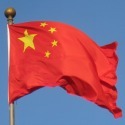China tech caught in a DC, Beijing regulator pincer-movement
Once upon a time, it was just the US moving against Chinese tech; now it's China moving against Chinese tech, too.

Death, taxes, the rise of Chinese tech stocks.
Some things once seemed certain.
But the Hong Kong shares of Tencent and Baidu have all tumbled over the last two days.
The companies are increasingly squeezed in a pincer movement involving regulators in China and their counterparts in the US.
On the one hand, a Trump-era law nearing implementation means US stock markets look likely to delist Chinese stocks. Combined with this, China's government is moving to crack down on its tech sector and take control of users' data.
Once upon a time, it was just the US moving against Chinese tech. Now it's China moving against Chinese tech, too.
The Securities and Exchange Commission, the US financial markets regulator, is going to "implement congressionally mandated submission and disclosure requirements of the Holding Foreign Companies Accountable Act," it said yesterday.
The act, which former President Donald Trump signed into law in December 2020, says overseas countries listed on US stock exchanges have to declare they are not owned or controlled by a foreign government.
In practice, foreign companies with public listings in the US need to provide access to audits, or they will be delisted after three years' non-compliance.
These audits need to disclose, among other things, the percentage of shares owned by government bodies in the company's home country. And the names of each Chinese Communist Party official who is a board member.
China's government doesn't let US regulators look over the books of its companies.
So unless one party budges, a good many Chinese companies will find themselves forcibly delisted from US stock markets.
Storm in a coffee cup
Like many ideas good and bad, it all began with a cup of coffee.
Beijing coffee chain Luckin Coffee, which was listed on the Nasdaq, fired its CEO and COO in May 2020 after an accounting scandal came to light.
The company, it turned out, had intentionally fabricated around $310 million in sales the year before.
Luckin was forcibly delisted from the Nasdaq on June 26, not before the Senate had dusted off and passed a stalled bill to make Chinese companies open their books to US regulators.
Meanwhile, Beijing is proposing a joint venture to oversee all user data that China's tech companies harvest.
This massively escalated an ongoing crackdown on Chinese tech, which Beijing officials believe has too much power.
The central bank, the People's Bank of China, envisages a government-backed entity combined with the country's largest e-commerce and payments platforms.
It's not yet clear what the joint venture's scope would be, what types of data it would manage, and from which sources.
But China's governing party has signaled the end of a hands-off approach to the Internet, fintech and e-commerce, which brought forth a generation of tech billionaires.
The fightback beforehand chiefly focused on Ant, founded by one such billionaire, Jack Ma.
Its $37 billion IPO was halted two days before it was due to happen in November 2020, and Jack Ma himself became curiously absent from view.
CEO Simon Hu departed on March 12. Of Ant's $310 billion valuation before its listing, a third has been wiped off.
Vanishing cash
Before this, China saw fintech take off like nowhere else.
Cash has largely vanished from China's streets, its place taken by QR codes and payments in WeChat windows.
Fintech processed payments worth 210 trillion yuan (US$32 trillion) in the first nine months of 2020, twice as much as four years before.
Enter upset regulators. And to be fair, the expansion of Chinese fintech brought enormous tales of abuse in its wake. Huge-scale fraud and billion-dollar scandals have largely wiped out peer-to-peer lending, with all platforms closing down by last November.
Much oversight has been done at provincial and city level, but even Beijing's finance office has 70 staff for 70,000 firms.
In a moment of introspection, a Chinese central bank official said last year that fintech causes turmoil when let loose, but it perishes when regulated.
Regulators in two countries now swoop down on companies like Alibaba, Tencent and Baidu.
But it's always possible one side or the other will draw back, realizing what it may have to lose.
Related reports:
— Pádraig Belton, contributing editor, special to Light Reading
Read more about:
AsiaAbout the Author(s)
You May Also Like




_International_Software_Products.jpeg?width=300&auto=webp&quality=80&disable=upscale)







